Afghanistan's first all-female orchestra Zohra visits the UK
- Published
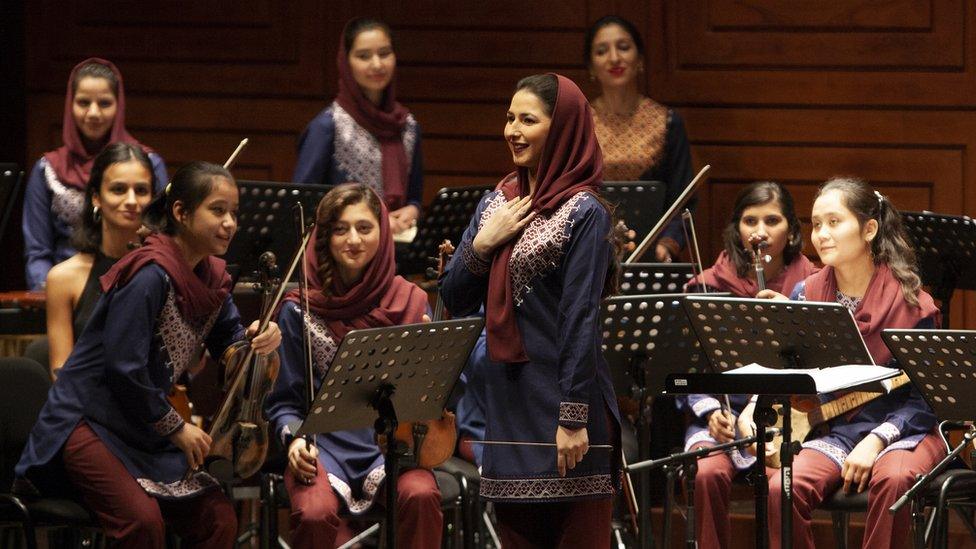
Zohra is led by conductor Negin Khpalwak
Five years ago, a unique all-female orchestra was formed in Afghanistan, a nation where only a few years previously music had been outlawed and women barred from education. Now Zohra is visiting the UK for the first time.
No-one claims that in Afghanistan, the Taliban influence has been rooted out entirely. Violence continues. But two decades ago, the Afghanistan National Institute of Music would have been unthinkable.
ANIM was founded in 2008, with international support, to bring music education to young Afghans. Not long before that, the Afghan capital Kabul had finally been wrenched from the grasp of the fundamentalist Sunni Muslim Taliban.
In the Taliban years, music - once a thriving and rich part of Afghan culture, admired around the world - had all but disappeared.
Today in Kabul, ANIM teaches music skills to some 250 young people, both male and female. That figure is about to rise to 320 and there are plans to expand to cities such as Herat, Mazar-e Sharif and Jalalabad.
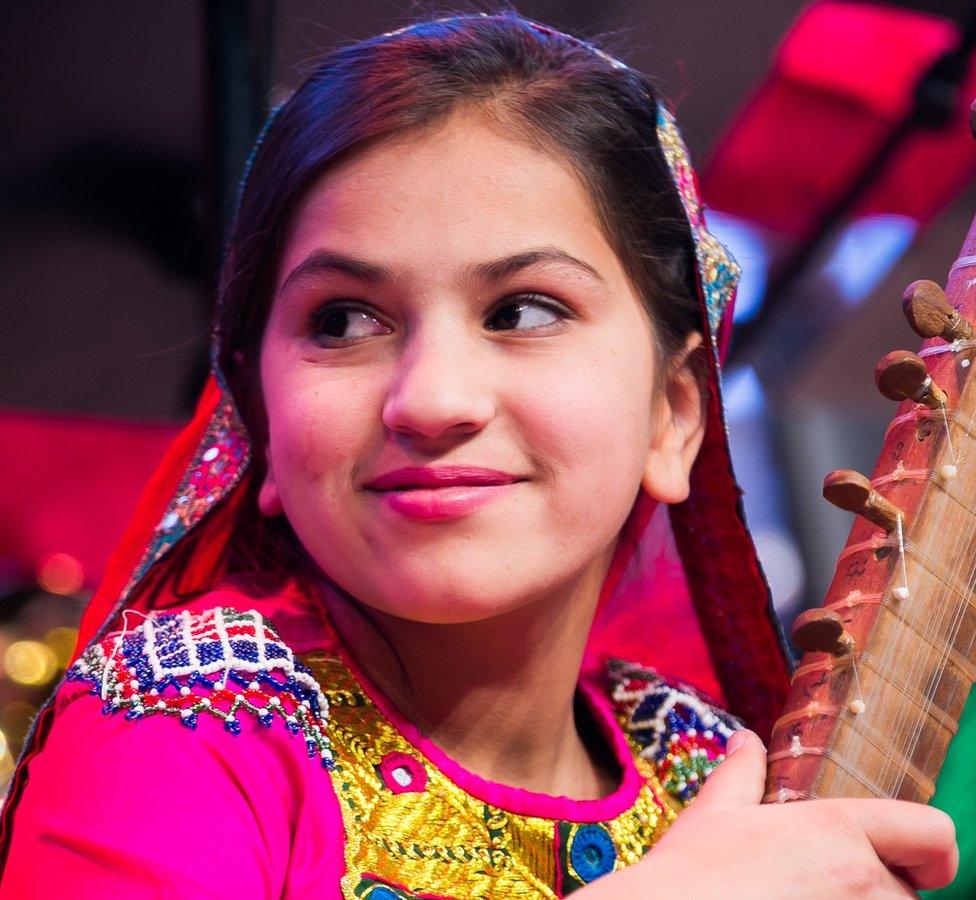
Anita plays the traditional dutar for Zohra

About 70% of the young people at the institute come from disadvantaged backgrounds - some used to work the streets selling vegetables, plastic bags or chewing gum to support their families. Ages range from 12 to around 20.
But five years ago, ANIM founder by Dr Ahmad Sarmast was urged to start a new project specifically to benefit girls.
"One of our students told me we needed a group of four or five girls to play pop music," he says. "I liked the idea but almost at once it became clear most of the girls at ANIM wanted to join. Suddenly we were talking about a full orchestra.
"For Afghanistan it was a new world. It wasn't just that the Taliban had made it impossible to perform or listen to music - the whole position of women in society was one of total repression."
The orchestra was named Zohra after a Persian goddess of music. Dr Sarmast is delighted it's making a name for itself elsewhere. "But above all it sends a message of gender equality to other Afghans.
"Zohra creates a lovely sound but also it's a symbol of the freedom of Afghan women. This is the message we take around the world."
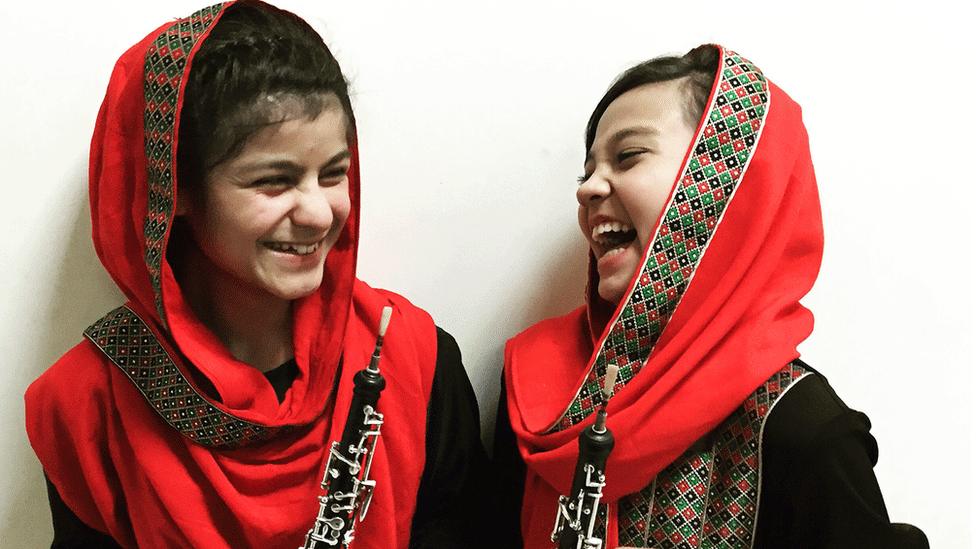
Madina and Taranom are oboe players
There are around 100 female students at ANIM, 23 of whom have come to Britain. Their numbers will be doubled when they play in concert with the London-based Orchestra of St John's and others. Instruments they've brought with them include the sarod, the rubab, tabla drums and the dutar.
The music performed is a combination of traditional Afghan music and western classical. For instance, their new arrangement of Greensleeves contains attractive new instrumentation probably not envisaged by Ralph Vaughan Williams in 1934.
The conductor for the Afghan pieces is Negin Khpalwak, who at 22 is one of the older musicians in the group. She joined the school not long after it opened - not initially with the idea of conducting at all. As a chorister, she performed in Dubai and has also played and conducted in the US, India, Germany and Switzerland.
"It's much easier for me to conduct when we play Afghan music," she says. "We're very familiar with it and we play together easily.
"If we perform something like Greensleeves - which I think is very well-known in England - we have to concentrate extra hard. All of us understand Western notation but we still have to practice a lot before our concerts in Oxford and London."

The ensemble's highest-profile concert in the UK will be at the British Museum on Friday. But there are other events too before they head home.
Cayenna Ponchione-Bailey of the Orchestra of St John's has arranged for University of Oxford students to mentor young musicians in Kabul - which until now has mainly been by Skype.
"What I love about Zohra is that in some ways it's like a traditional Western chamber orchestra - but also we have these marvellous Afghan instruments embedded," she says.
"There are many things which music can achieve - and empowerment is definitely one of them. In Afghanistan, women's education continues to be precarious.
"So it's important that these girls and young women know they have a global support system. There are friends and a network which will support them as they assert their human rights."
Negin Khpalwak says even in Kabul, students can still sometimes encounter people beyond the school who think it's wrong that the orchestra even exists.
"They will say that in Islam women aren't allowed to go to school, not just for music but to study anything. But it's not true - women have their own rights and those people need to be educated.
"Our music isn't the only way to do that - but it's one way."

Follow us on Facebook, external, on Twitter @BBCNewsEnts, external, or on Instagram at bbcnewsents, external. If you have a story suggestion email entertainment.news@bbc.co.uk, external.
- Published10 November 2015
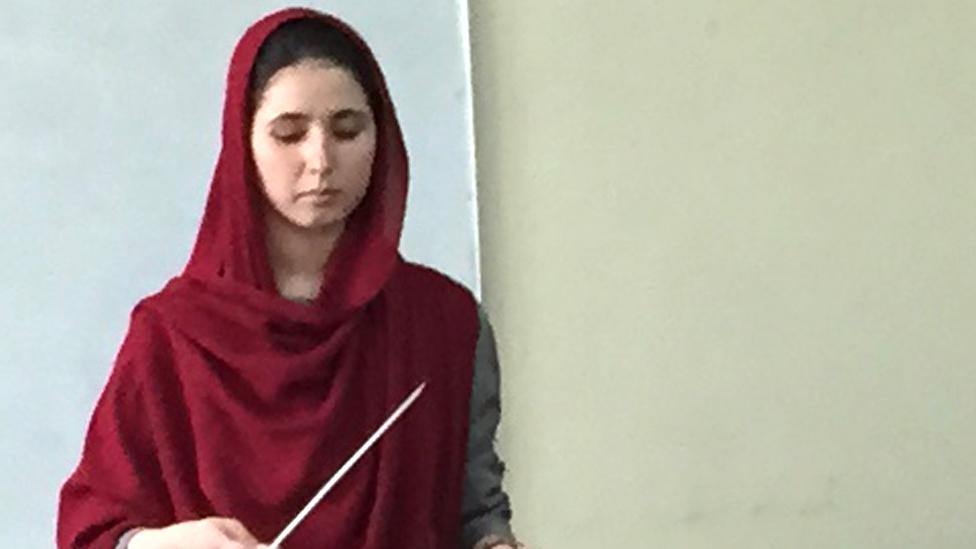
- Published22 May 2014
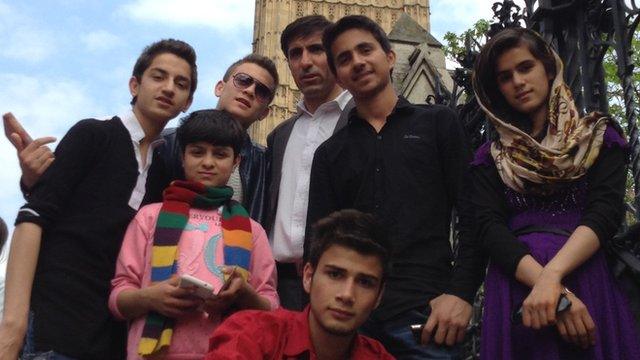
- Published23 March 2014
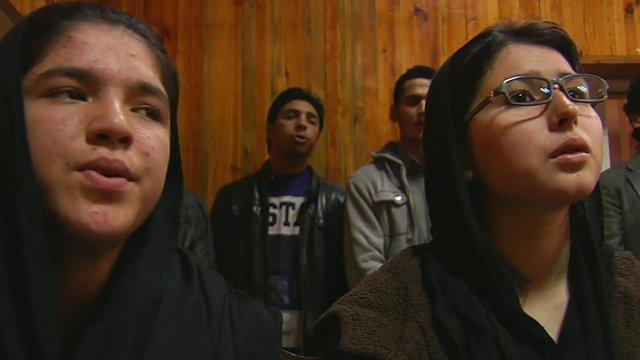
- Published13 January 2012